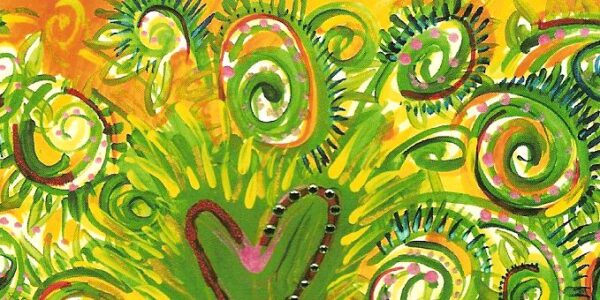Brain-training apps on cell phones and computers have become a very popular, multi-billion-dollar industry and promise to enhance memory and to improve other cognitive functions.
People are hopeful. However, they genuinely want to know if an app will be the magical solution for warding off cognitive decline and if it will help them reverse the brain-related issues with which they are currently dealing. Therefore, I often get asked if these claims are accurate and stand up to science.
While research shows that there may be some value in these programs, some of them can be expensive and often require a subscription or membership to be accessed. Not to mention, they are typically done in a seated position, facing a tech device. This position is contrary to the importance of movement and social interaction that studies have well proven to be essential for one’s brain.
In a study done at Rush Alzheimer’s Disease Center in Chicago, researchers asked 700 nuns, priests, and religious brothers to describe how much time they spent doing various activities such as going to museums, playing games, and reading the newspaper. For seventeen years, the researchers kept a careful watch on the study participants and periodically asked them to take memory tests.
When the study participants died, the researchers autopsied and examined their brains. You know what they found? The study participants who took part in more activities more often had a forty-seven percent reduced risk of developing Alzheimer’s disease compared to those who participated in the fewest activities least often. That is a huge difference!
Brain teasers alone may provide some benefit if they are enjoyed and done regularly. However, they are not a solution for supporting cognitive health and reversing brain issues.
There are a multitude of ways to build a healthier and more youthful brain, and there are a variety of habits that are absolutely essential. For example, online Brain Training does not replace a good night’s sleep, healthy eating, ample movement, time in nature or socializing with friends and family.
The best evidence to date shows that cognitive health in old age is reflected from the long-term implementation of healthy, engaged lifestyles.
This is shown in another four-year study that found that the more often study participants read, played cards, did puzzles, went to museums, and listened to the radio or watched TV, the less likely they were to develop dementia over the time period. The activities most likely to reduce risk included reading, board games, and playing musical instruments, but not brainteasers!
6 BRAIN TRAINING TIPS
Starting a new hobby will help to age-proof your brain, and those that require quick decision- making and careful attention to details are particularly powerful.
Here are some to consider:
- THEATRE or IMPROV: While improvisation requires you to think quickly and maintain an open mind, theatre roles involve the memorization of lines in a script. Both get your out of your comfort zone and have brain benefits! A study of 122 adults who took acting classes twice a week for four weeks found that they performed better on tests of memory, comprehension, creativity, and problem solving compared to other study participants who didn’t take acting lessons.
- KNITTING, SEWING, QUILTING: These activities improve brain functioning by learning new skills and patterns. As you use your fingers and hands in new ways, you also develop fine motor skills. In a study of 259 people, participants who spent sixteen hours a week learning to quilt improved their memory over people who didn’t try this new hobby.
- SAY CHEESE: The same study that revealed the brain-sharpening benefits of quilting also discovered that people who spent sixteen hours a week learning photography skills boosted their memory.
- LEARN TO JUGGLE: In one study, participants used juggling packs to teach themselves how to juggle, practicing for half an hour a day. After six weeks, the study participants increased the amount of white matter in their parietal lobes, which connects what we see with how we move. Other research shows that juggling may be able to help us with spatial problems such as how to effectively organize a closet.
- PLANT SEEDS, TAKE OUT WEEDS: Along with providing great exercise, gardening improves brain functions and the use of executive functions. There are many decisions to make, and it involves planning and organizing what you want to grow, while considering the climate, sunlight, and soil, and so much more.
- TAKE UP DANCING: Dancing is not only a form of exercise, but it can also boost mood, lower stress, and help you to expand your social circle. It is fun! Also, it works your brain in new ways according to a study out of Albert Einstein College of Medicine in New York City of people aged 75 years and older. Of all the physical activities examined in the study, frequent dancing seemed to offer the most benefit, reducing risk for dementia by 76 percent!
As you can see, as much as computerized brain training may have benefits, real life is what your brain craves and needs most!
To Your Fit Brain & Fit Life,
Jill

